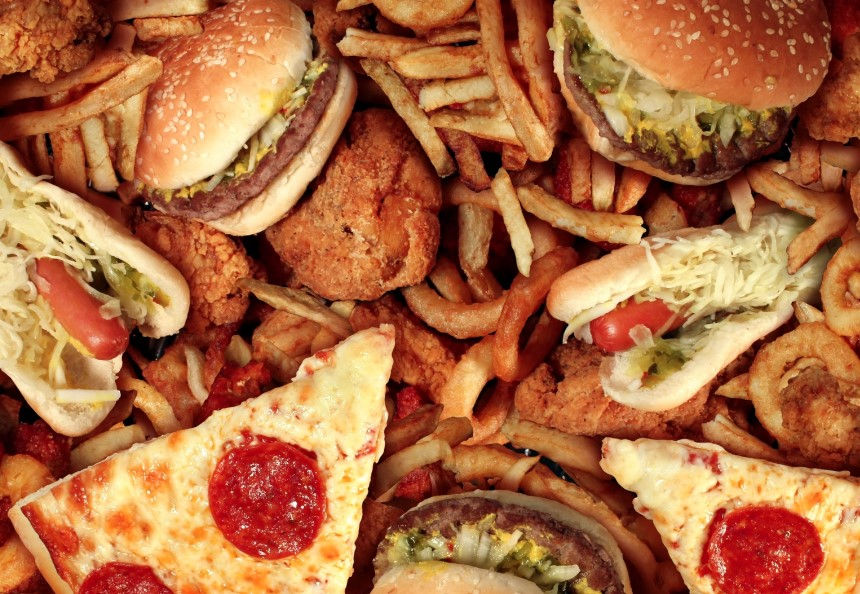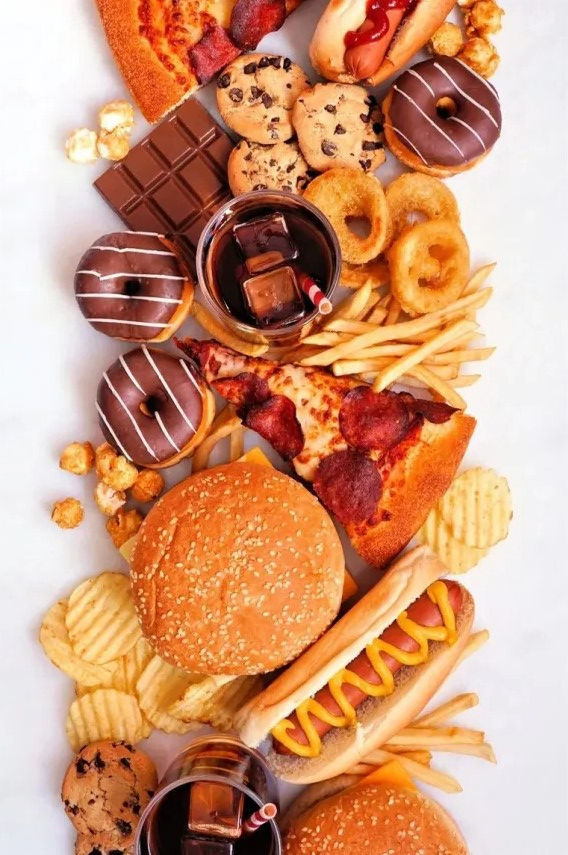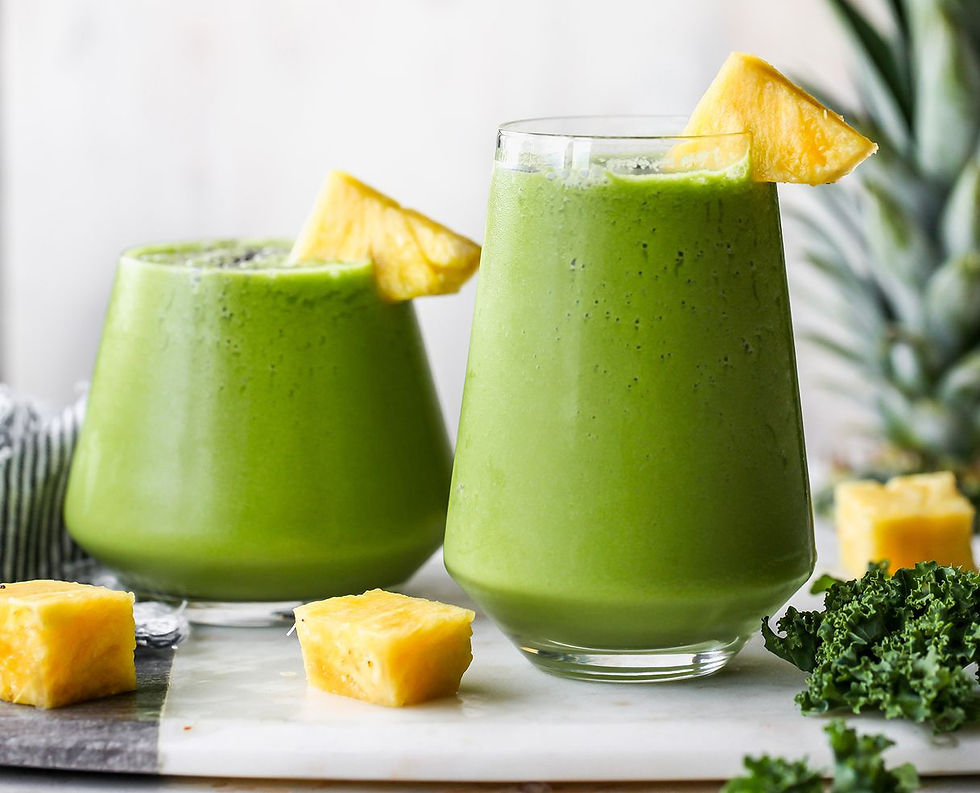
This week we’re going to talk about ultra-processed foods. Let’s start off with what ultra-processed foods are. According to Wikipedia, an ultra-processed food (UPF) is an industrially formulated edible substance derived from natural food or synthesized from other organic compounds. The resulting products are designed to be highly profitable, convenient, and hyperpalatable, often through food additives such as preservatives, colourings, and flavourings. UPFs have often undergone processes such as moulding/extruding, hydrogenation, or frying.
To put it simply, processed foods are foods that have been specifically treated or changed from their natural state. This never leads to a net positive result where health is concerned. Processed foods are a major source of fat in the diet, and the processing and refining of foods can affect their mineral content. Also, processing adds minerals to foods, such as sodium, as a preservative or for flavour. Minerals are also added to enrich foods, ie calcium fortified orange juice and soy milk, and some minerals, such as iodine in milk, are increased by contamination from the cleaning solutions used on milking machines.
UPFs include most bread and other mass-produced baked goods, frozen pizza, instant noodles, flavored yogurt, fruit and milk drinks, “diet” products, baby food, and most of what is considered junk food. As of 2024, research into the effects of UPFs is rapidly evolving, and we’re starting to discover some of the long-term effects consuming these foods is having on populations.

According to a BMJ study on UPFs (see link in sources below – very worthwhile study to read), “The range of adverse health outcomes reviewed across the 45 discrete pooled analyses included mortality, cancer, and mental, respiratory, cardiovascular, gastrointestinal, and metabolic health outcomes. All meta-analysis studies were published in the past three years, and none was funded by a company involved in the production of ultra-processed foods. The number of original research articles included in the pooled analyses was four on average and ranged from two to nine. The sum total number of participants included across the pooled analyses was 9,888,373 (ranging from 111,317 to 9,629,348).” The numbers associated with adverse health outcomes attributed to UPFs are disturbing to say the very least.
The following is an excerpt from cspinet.org: “Big Food and Big Tobacco share some common bloodlines. It wasn’t very long ago that some of these companies were one and the same. RJR Nabisco, for instance, once simultaneously contained the companies that made Camel cigarettes and Chips Ahoy! cookies. Until the mid-2000s, the companies that manufacture Marlboro and Virginia Slims cigarettes were part of the same conglomerate, Philip Morris (now Altria), which manufactured Kraft Macaroni & Cheese and Kool Aid. Those companies have since split their tobacco businesses from their food businesses, but heavy-handed product marketing may be ingrained in the companies’ DNA.
While we need food to live, we certainly don’t need many of the junk foods—many aimed at kids—served up by food processors and restaurants. Soda and other sugary drinks, in particular, are one category of food that does far more harm than good. Sugary drinks are the single biggest source of calories in the American diet and prime culprits when it comes to diabetes, heart disease, obesity, and other health problems.
Like Big Tobacco, Big Food goes to great lengths to muddy the waters and obscure the connections between soda and disease. “The products we make are not injurious to health,” is how the Tobacco Industry Research Committee put it in a 1954 advertisement. In 2012 the American Beverage Association opined, “Sugar-sweetened beverages are not driving obesity.” Coca-Cola executive Katie Bayne told this whopper to USA Today: “There is no scientific evidence that connects sugary beverages to obesity.”
Though both food and tobacco companies have been notorious marketers to children, they both like to lecture parents: “It is the responsibility of every parent to encourage their children to make proper choices about lifestyle decisions,” is how RJ Reynolds Tobacco Company put it in the mid-1990s. It’s not the role of the federal government to discourage kids from smoking, it went on to say. In 2011, McDonald’s CEO Jim Skinner said “It is up to [kids] to choose and their parents to choose, and it is their responsibility to do so.” (end excerpt)
The same companies that once marketed cigarettes are now marketing UPFs, and they’re blaming people who eat the foods for their own demise. I’m a firm believer in personal responsibility, at the same time, I also believe that responsibility extends to corporations, and their obligation to be honest about the products that they're selling.
There’s been some questions recently about whether or not UPFs are bad for you, including a recent article in TIME Magazine which asks, “What if Ultra-Processed Foods Aren’t as Bad as You Think?” Let me save you some time and effort – no, they’re not as bad as you think. They’re much, much worse. When should you eat UPFs? The short answer is: Never. I know we’re all guilty of doing it on occasion. I occasionally do it as well. We were all raised in a time where it was completely acceptable to eat this stuff. Whenever anyone asks me how often they should eat UPFs, though...my honest answer is that they should never eat it. I’d be a horrible holistic nutrition practitioner if I told you otherwise. At the very least, it should be eaten as infrequently as possible.

So, as this debate attempts to heat up, I’m going to pull out a bucket of water here and douse fire before it even has a chance to start creating any real flames. UPFs have little to no nutritional value. They are high in sugar and unhealthy fats. They contain addictive properties that are not present by accident, after all, tobacco companies had to make up for their lost profits somehow, right? Of course I’m just speculating...of course.

If you think that you’ve got an issue with UPFs, if you know for sure that you do, or if you just want some help finding your way to a healthier lifestyle, I can help you. I understand that time isn’t something we have a lot of these days. I completely understand how intimidating it is to change your lifestyle. I absolutely get it, and I still know that with an open mind on your part, I can help you take control of your health and fall in love with eating healthy food. Rule number one about nutritious food: Healthy is delicious! I can help you develop the tools you need to start living a healthy and fulfilling life! Book an intake here, and let’s get started! Take a look at the Smile pre-order menu here, and get off to a healthy start, while saving some time on meal prep.
Sources:
Nutrition Science & Applications (Smolin, Grosvenor, Gurfinkel)

Commenti